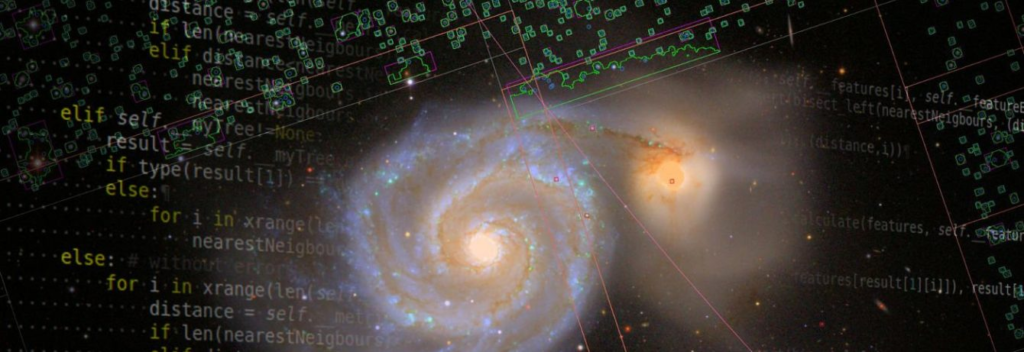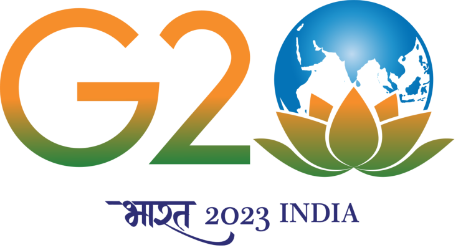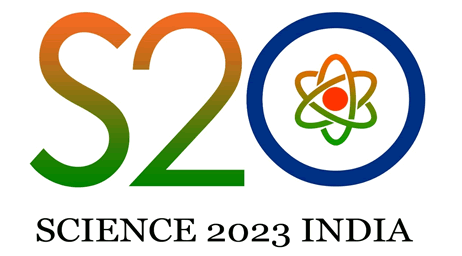Science20 Policy Webinar: Astroinformatics for Sustainable Development

Schedule
Panelists
The meeting was broadcast live on INSA’s youtube channel. It can be accessed here:
The Group of Twenty (G20) is the premier forum for fostering international cooperation on topics of global importance with an impact on growth, the economy, and sustenance. India assumed the G20 presidency in December 2022 for one year. The Science-20 (S20) Engagement Group supports the G20 by fostering an official dialogue with the scientific community of member states and providing evidence-based policy recommendations. The Indian National Science Academy (INSA) was responsible for leading S20 activities. The core purpose of the S20 Engagement Group is to present policymakers with consensus-based recommendations from a science-based perspective on chosen topics of global concern, which are then presented to the heads of government by the G20 chair.
Under the ‘Connecting Science to Society’ sub-theme, an online S20 meeting “Astroinformatics for Sustainable Development,” was hosted on the 6th and 7th of July, 2023, to present various aspects of the burgeoning field of Astroinformatics, with a focus on global data and regional and global collaborations, ensuring it is action-oriented, ambitious, decisive, and inclusive, providing ample opportunities to share best practices and bold plans to promote technologies and innovations.
Astronomy is, by definition, a universal science and captures the imagination of the young easily. In the last few decades, many large surveys and projects have been undertaken, leading to important advancements and newer questions. We should ensure that the field does not become elitist and can continue to reach the masses through STEM and R&D infrastructures so that astroinformatics and society stay not just connected but strengthen each other.
The meeting brought together representatives from leading international organisations, research institutions, and space agencies to discuss the latest developments and opportunities in these fields and their potential for global development. We started off with a few talks that provided a broad overview and set the tone, and panel discussions with experts then presented a few bullet points before moving on to discussions about the necessary architectures, structures, processes, and policies for cooperative and sustainable development. The panels are on the following topics:
- Global data: What are the ways in which global data in astronomy have changed over the last few decades, and what we can expect in the future. What policy-level preparations are needed to address the challenges and opportunities presented by the increasing volume, complexity, and distributedness of data, including pipelines, provenance, required follow-up etc.
- Astroinformatics Examine the transdisciplinary nature of astroinformatics and the potential for cross-fertilization between astronomy and other fields. The panel will discuss the implications for methodology transfer and connections to other fields.
- Regional and global collaborations The third panel will explore the opportunities and challenges presented by regional and global collaborations in astronomy. This goes to the heart of the culture of doing science without borders.
- Sky surveys The latest developments and opportunities in sky surveys, both ground-based and space-based, and their implications for global astronomy research.
- Long-term space data and informatics needs This panel will examine the challenges and opportunities presented by long-term space data collection, storage, transmission, and analysis (including on-board machine learning) and the potential for these efforts to contribute to global development goals.
- Workforce development This panel will explore workforce development needs in astronomy and astroinformatics, including connections to STEM education. The panel will discuss strategies for developing a diverse and skilled workforce to tackle the challenges and opportunities of these rapidly evolving fields.
- Large Projects This panel will explore global connections created by large projects and strategies for smoothening the collaborations, and the connection of such projects with global data, large surveys and astroinformatics.
The white papers produced at the end of this deliberation can be accessed here:
The summary paper is as follows:
These white papers will serve as a resource for policymakers, researchers, and other stakeholders interested in the intersection of astronomy and global development. Together, we can explore the opportunities and challenges presented by astronomy and astroinformatics for global development, identify strategies for leveraging their potential for the greater good, and develop a skilled and diverse workforce to tackle the challenges and opportunities of these fields.
Conveners:
Ashish Mahabal, President, Astroinformatics and Astrostatistics Commission, International Astronomical Union; Caltech; IUCAA (Adjunct)
Pranav Sharma, Secretary (Policy), Science20 (INSA).
The International Astronomical Union (IAU), the Astronomical Society of India (ASI), and the American Astronomical Society (AAS) all endorsed the meeting.

